The end of austerity (again)
Once a technical term, 'austerity' now just means life feels vaguely rubbish. No wonder voters think we're still in it
By my reckoning, Rachel Reeves is now the sixth chancellor of the exchequer since George Osborne left office to have declared the “end of austerity”. In fact, if we accept that austerity lasted from mid-2010 until 2016, chancellors have been announcing its demise for longer than the actual period of fiscal consolidation.
One can imagine that hundreds of years from now, future chancellors will stand at the despatch box and, before they begin their statements on the Budget or Spending Review, dutifully proclaim the end of austerity, as just another parliamentary tradition of which no one quite knows the origin.
For the record, austerity has been ‘ended’ to some degree by the following chancellors:
Philip Hammond — 2016 Autumn Statement
Philip Hammond (again) — 2018 Autumn Budget
Sajid Javid — 2019 Spending Round
Rishi Sunak — 2020 Spring Budget
Kwasi Kwarteng — 2022 mini-Budget
Jeremy Hunt — 2023 Autumn Statement
Poor old Nadhim Zahawi only misses out on the basis that he was not in the job long enough to deliver a fiscal event.
Undeterred, Reeves took to her feet at yesterday’s Spending Review and declared: “Austerity was a destructive choice for both the fabric of our society and our economy… My choices are different.” For understandable reasons, the public may take some convincing. Polling earlier this month from Ipsos found that more than half of Britons believe the country is in a period of austerity.
As I’m not running for anything, I’ll be blunt. The UK is not undergoing a period of austerity in any meaningful sense of the word. Day-to-day spending outside of Health and Defence may be tight, but the early 2010s saw most departments undergoing brutal real-terms cuts, some by more than 20%. Government grants to local authorities fell by 40% in real-terms in the decade after 2009-10.
But this is not what voters mean when they talk about austerity. When asked, 43% mentioned rising inflation, 42% a stagnant economy and 38% the quality of public services getting worse. And by these terms, they are not wholly wrong.
Inflation may be well down on the 11.1% peak of October 2022, but that does not mean that the price level is falling. The economy is still largely flatlining, while public services remain in a bad way. Even NHS waiting lists in England are rising again, up to an astonishing 7.42 million in March.
Nor do voters think things are likely to improve. Ipsos’ Economic Optimism Index has been asking Britons about the general economic conditions of the nation since 1978. The latest results show that just 15% expect the economy will get better, compared with 63% who think it will get worse, a net figure of -48. Remarkably, this represents an improvement from the historic low of -68 seen in April, but still considerably below the long-term average of -17.
Simply put, austerity no longer means what it once did. Over time, the term has drifted from its technical meaning — real-terms spending cuts and tax rises — to something more ambient and even visceral. It now serves as a shorthand for national decline: crumbling services, rising costs and a creeping sense that the state no longer functions. That everything is just a bit… crap.
Reeves will point to the fact that total departmental budgets are set to grow by 2.3% a year in real-terms, with day-to-day health spending rising by 3%. But this masks a couple of important points. First, big cuts to other departments such as Transport, Defra and the Home Office. Second, even that 3% rise for the NHS falls significantly below the historical average.
Meanwhile, analysis by The Nuffield Trust and The King’s Fund of the British Social Attitudes survey finds that public satisfaction with the health service has fallen to its lowest level on record.
The good news for Labour is that the party remains, by some distance, the most trusted to improve public services. The bad news? That trust is in the form of a payday loan. Unless voters’ lived experiences tangibly improve, they will blame it on austerity — and wonder why they voted Labour in the first place.



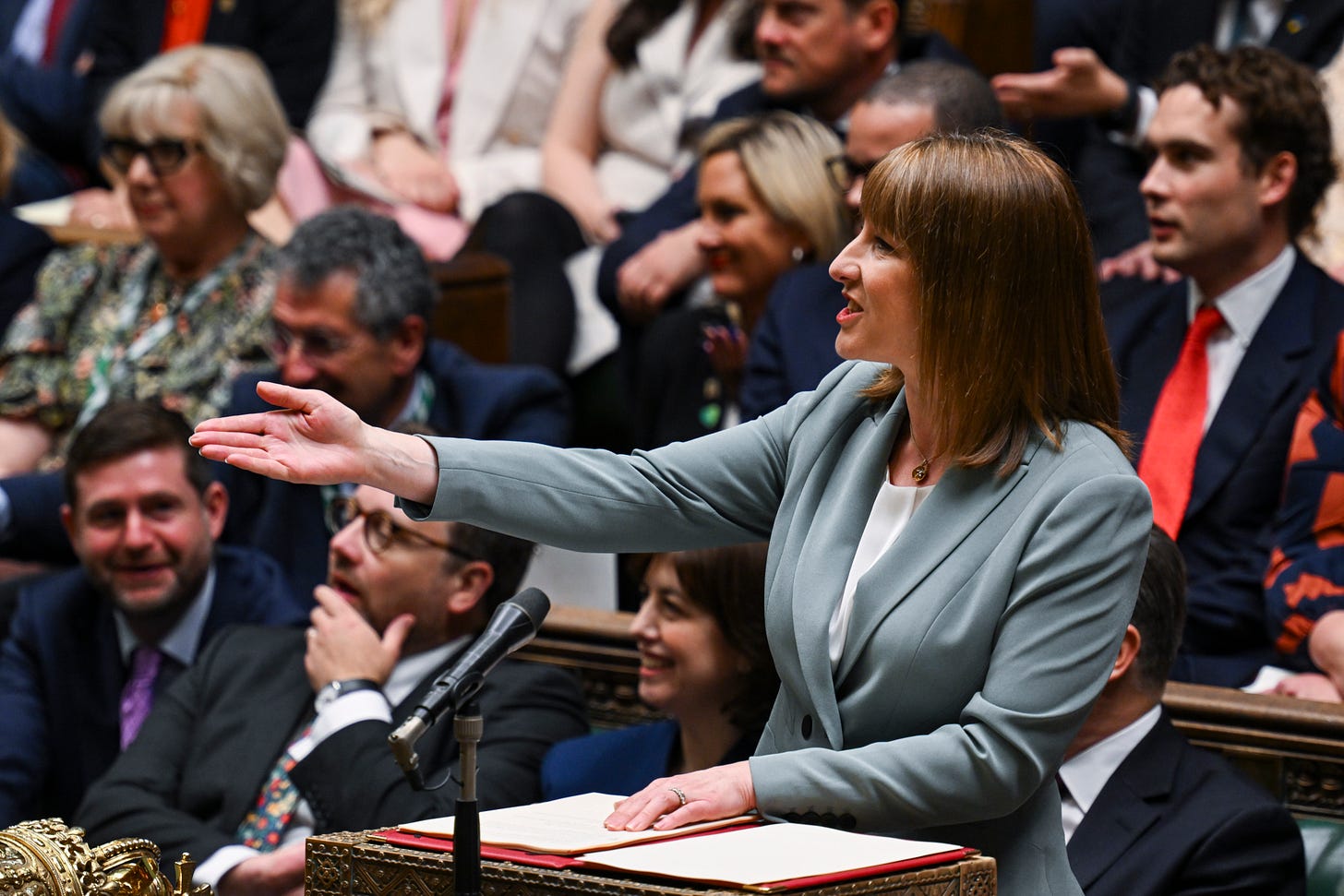
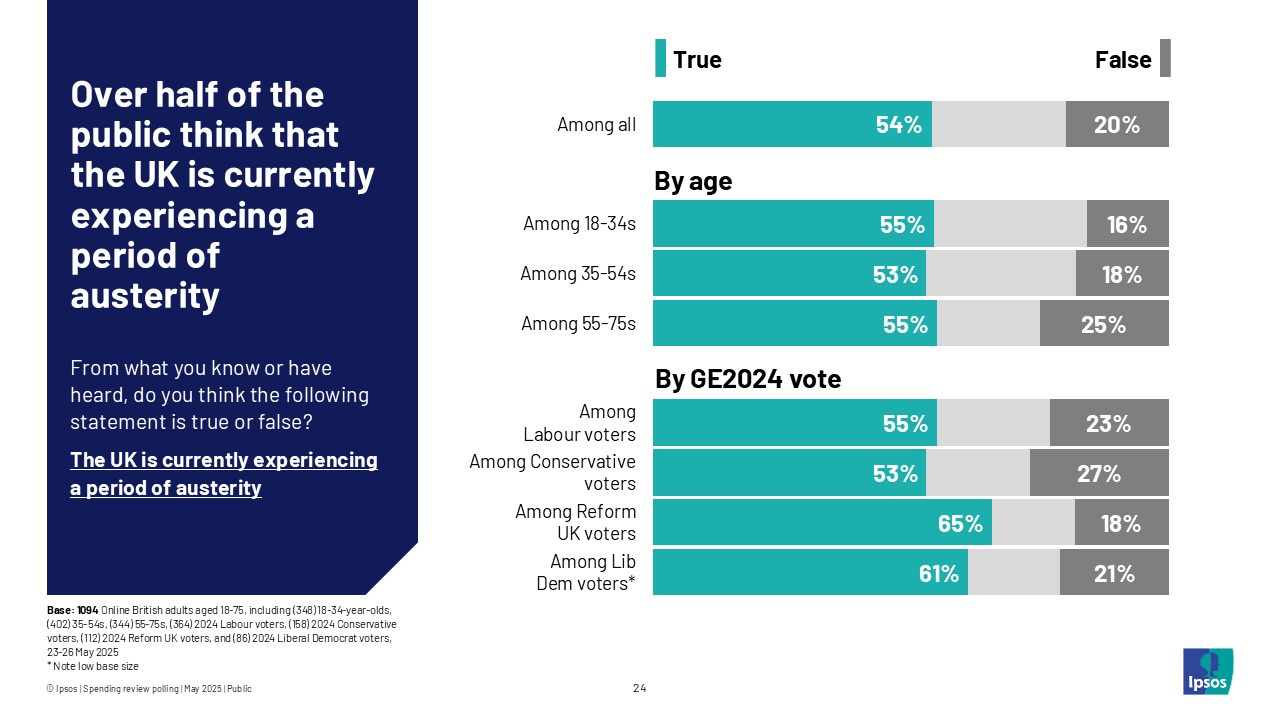
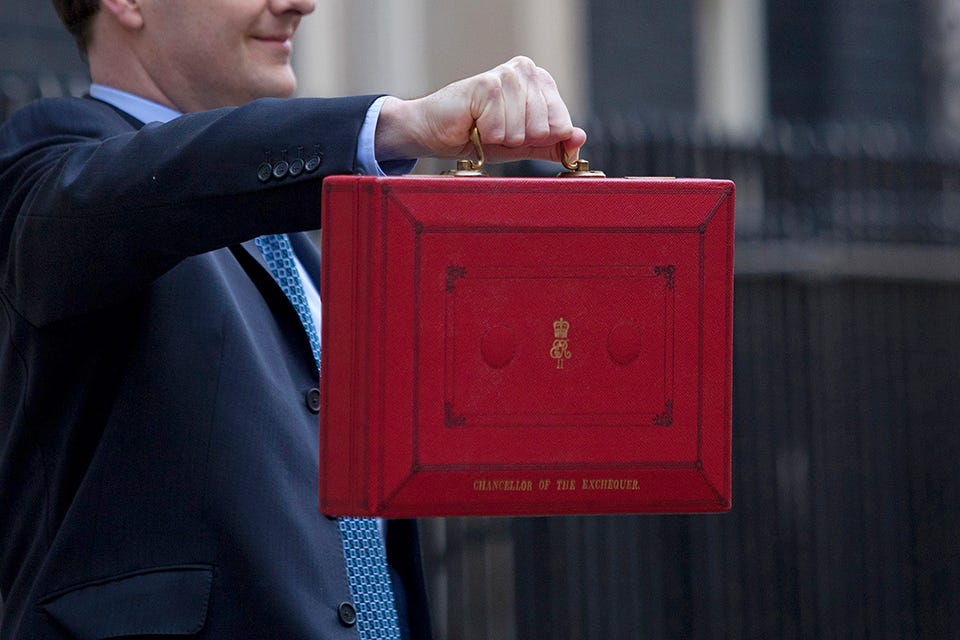
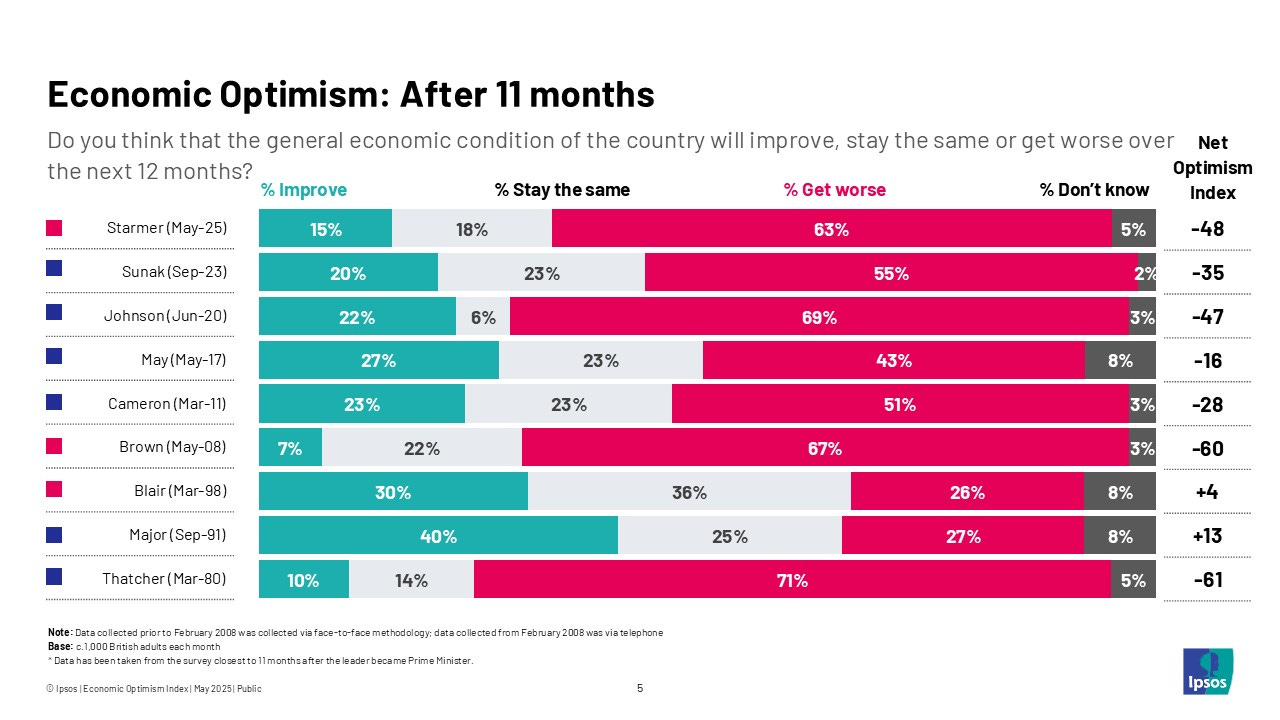

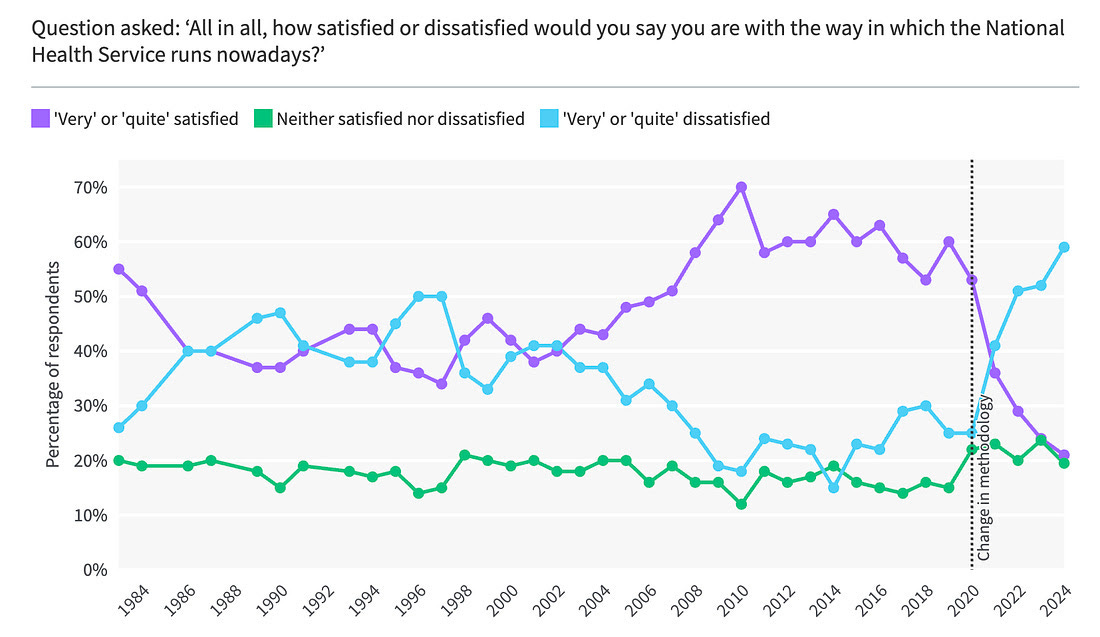
You have voiced my thoughts for the last ten years about 'austerity'. It is just a misguided mindset, like the negative effects of being an EU member.